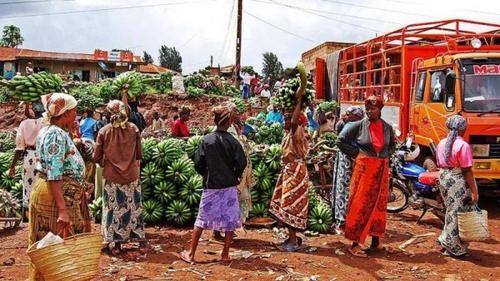Business
Tanzania Bans All Agricultural Imports from South Africa and Malawi Amid Trade Tensions

Tanzania has imposed a sweeping ban on all agricultural imports from South Africa and Malawi, escalating an ongoing trade dispute that threatens to disrupt food supply chains and regional economic ties in Southern Africa.
The move comes after both South Africa and Malawi introduced import restrictions on several key Tanzanian agricultural goods last week, including rice, flour, ginger, bananas, and maize. The restrictions immediately impacted Tanzanian exporters, prompting backlash from the government in Dar es Salaam.
“This Is Business – We Must Respect Each Other”
Tanzanian Agriculture Minister Hussein Bashe made the announcement on social media platform X, stating that the ban is a direct response to what the government sees as unfair trade practices by its neighbors.
“We are taking this step to protect our business interests,” Bashe said during a press briefing. “This is business – in business, we must all respect each other.”
Bashe had earlier issued an ultimatum to both Pretoria and Lilongwe, demanding that the restrictions be lifted by the following Wednesday. With no action taken by the deadline, Tanzania followed through with a total ban on all agricultural imports from the two nations.
Background to the Ban
Tanzania’s response follows longstanding grievances over non-tariff barriers imposed by South Africa and Malawi. South Africa has maintained a ban on banana imports from Tanzania for years, while Malawi has blocked several key Tanzanian exports, claiming the need to protect its local industries.
Malawi’s Trade Minister, Vitumbiko Mumba, defended their policy at the time, saying it was a “strategic move to create an environment where local businesses can thrive without the immediate pressure of foreign competition.”
Tanzania’s latest move is being framed not as an act of aggression, but as a measure to ensure reciprocity and fair competition in regional trade.
Diplomatic Channels Still Open
Despite the ban, Minister Bashe clarified that Tanzania is not seeking to escalate the situation into a full-blown trade war. He confirmed that diplomatic discussions are ongoing, and the government remains open to negotiating a solution that protects Tanzanian farmers while restoring balance in regional trade.
“Our goal is to safeguard the country’s economic interests and ensure our producers are treated fairly,” Bashe stated.
What’s at Stake
The ban is expected to impact traders across the region. Malawi and South Africa both rely on Tanzania’s agricultural products for seasonal imports, while Tanzanian traders now face disrupted access to two key markets.
Economists warn that the dispute, if prolonged, could result in price increases, food shortages, and further strain on regional trade relations.
{Source: Business Insider Africa}
Follow Joburg ETC on Facebook, Twitter , TikTok and Instagram
For more News in Johannesburg, visit joburgetc.com















